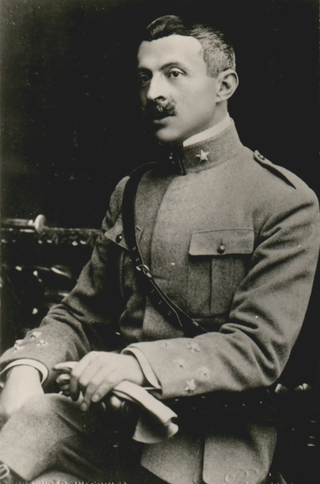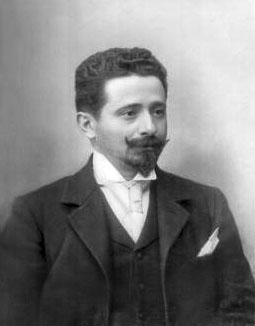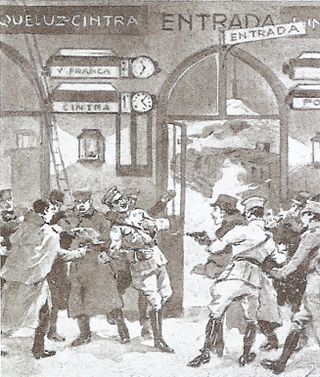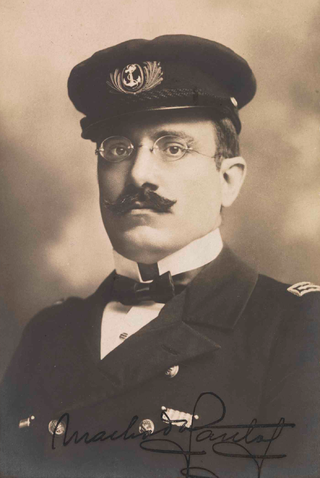
Sidónio Bernardino Cardoso da Silva Pais was a Portuguese politician, military officer, and diplomat, who served as the fourth president of the First Portuguese Republic in 1918. One of the most divisive figures in modern Portuguese history, he was referred to by the writer Fernando Pessoa as the "President-King", a description that stuck in later years and symbolizes his regime.

Ourique is a city in the District of Beja in Portugal. The population in 2011 was 5,389, in an area of 663.31 km2.

Domitilade Castro do Canto e Melo, 1st Viscountess with designation as a Grandee, then 1st Marchioness of Santos, was a Brazilian noblewoman and the long-term mistress and favorite of Emperor Pedro I.

The First Portuguese Republic spans a complex 16-year period in the history of Portugal, between the end of the period of constitutional monarchy marked by the 5 October 1910 revolution and the 28 May 1926 coup d'état. The latter movement instituted a military dictatorship known as Ditadura Nacional that would be followed by the corporatist Estado Novo regime of António de Oliveira Salazar.

João do Canto e Castro da Silva Antunes, commonly known simply as João do Canto e Castro was a Portuguese Navy officer and the fifth president of Portugal during the First Portuguese Republic. He also briefly served as the 67th prime minister of Portugal.

Caminha is a municipality in the north-west of Portugal, 21 km north from Viana do Castelo, located in the Viana do Castelo District. The population in 2011 was 16,684, in an area of 136.52 km².

The Democratic Party, officially known as the Portuguese Republican Party, was a Portuguese centre-left political party during the Portuguese First Republic. It was also the self-proclaimed successor to the original Portuguese Republican Party, which had been behind the revolution that established the Portuguese First Republic in 1910.

João Tamagnini de Sousa Barbosa, commonly known as João Tamagnini Barbosa, or Tamagnini Barbosa, was a Portuguese military officer and politician of the Portuguese First Republic (1910–1926).

General elections were held in Portugal on 28 April 1918, following a coup by Sidónio Pais in December 1917. The elections were boycotted by the Democratic Party, the Evolutionist Party and the Republican Union, who had won over 90% of the seats in the 1915 elections.
Events in the year 1918 in Portugal.
Events in the year 1872 in Portugal.
Events in the year 1934 in Portugal.

The Monarchy of the North, officially the Kingdom of Portugal, was a short-lived counter-revolution against the First Portuguese Republic and a monarchist government that was established in Northern Portugal in early 1919. It was based in Porto and lasted from 19 January to 13 February 1919. The movement is also known by the derogatory term Kingdom of Traulitânia.
The National Republican Party, unofficially known as the Sidonist Party after its leader Sidónio Pais, was a political party in Portugal.

José Júlio da Costa was a Portuguese left-wing political activist who assassinated President Sidónio Pais of Portugal on 14 December 1918.

The fourth President of Portugal, Sidónio Pais, was shot and fatally wounded at the Lisboa-Rossio Railway Station in Lisbon, Portugal on 14 December 1918. The act was carried out by the left-wing political activist José Júlio da Costa.

António Maria de Azevedo Machado Santos was a Portuguese Navy officer, remembered as the "Hero of the Rotunda" for his role in the 5 October 1910 revolution.

The December 1917 coup d'état was a politico-military uprising led by Sidónio Pais, which started in Lisbon, Portugal, with the objective of taking power from the Democratic Party, which had won every election in Portugal since the foundation of the Portuguese First Republic in October 1910.













